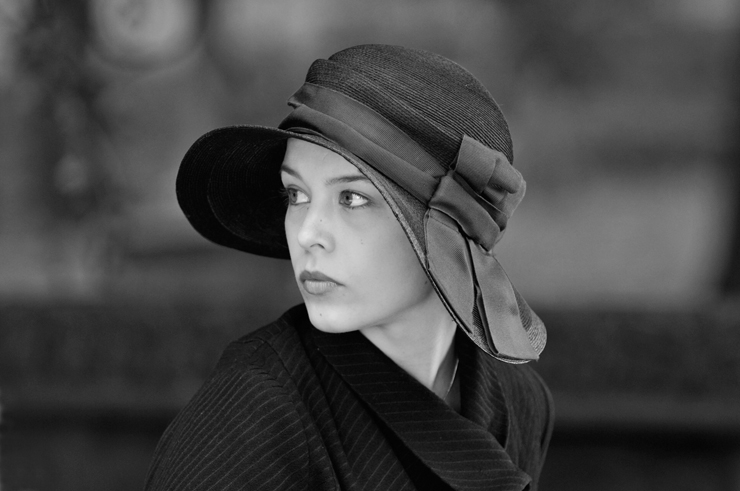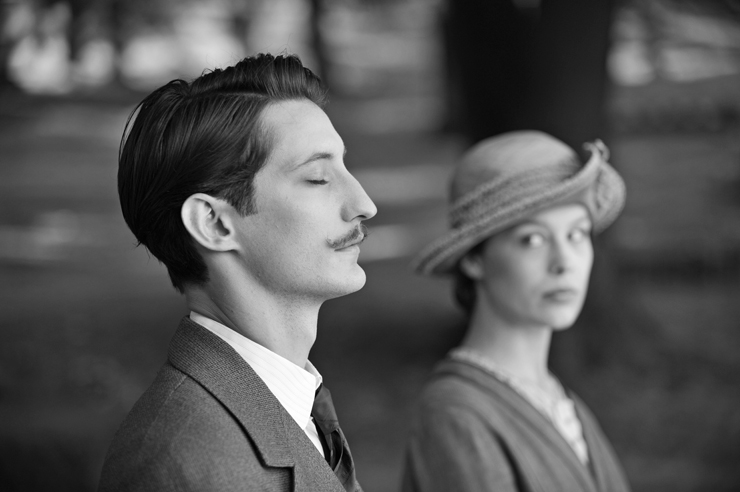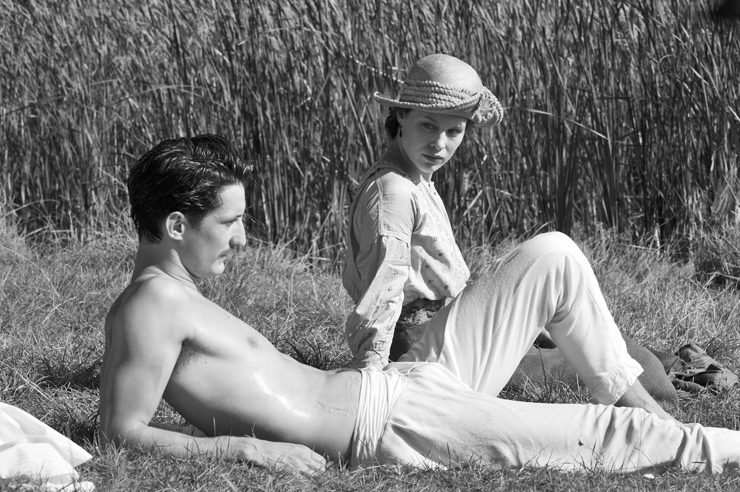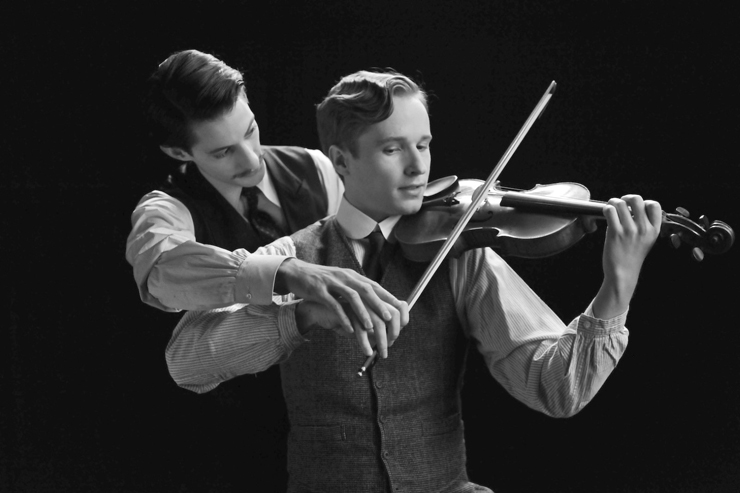
Paula Beer.
"Those roses are not mine," Anna thinks to herself, and the game is afoot.
The year is 1919. The setting is Quedlinburg, a town located smack dab in the middle of Germany. The mood? Funereal, but picturesque.
Dressed from head to toe in black, Anna (Paula Beer) stares dumbfounded at the flowers gracing the grave of Frantz Hoffmeister, the man who would have been her husband later that summer, if only he'd survived the war.
It takes all of 10 minutes for "Frantz," French director François Ozon's 17th feature (by my count), to grab you by the lapel and refuse to let go. The storytelling here is clear and unfussy, the pacing crisp, yet unhurried, and the images lush but unshowy (and, save for the occasional burst of color, shot in ravishing black and white by César winner Pascal Marti).
There's also a welcome lack of sentimentality, which is par for the course for the man who brought us "Swimming Pool" and "Young & Beautiful." No cloying voiceover narration to speak of, no "based on a true story" qualifiers to entice the "cinema of quality" crowd. When the flashbacks come, they're of the sly, seductive variety.
But let's get back to Anna, who's already living like a widow at 22 and prepared to spend her days as a spinster under her would-be in-laws' roof. She asks the groundskeeper at the cemetery if he's seen the mystery person behind the kind gesture.
"Must have been the foreigner," he replies, his contempt emblematic of the lingering animosity between Germany and France in the aftermath of World War I.
It doesn't take long for Anna to spot the slight, frail-looking Frenchman with a pencil mustache standing before Frantz's tomb. The strangers tentatively size each other up, and quickly recognize in each other a fellow traveler, united in their grief for a sweet-natured lad enthusiastic about fine art and disdainful of combat.

Pierre Niney, Paula Beer.
"Rivoire. Adrien Rivoire," says the skinny but not bad looking visitor ("Yves Saint Laurent's" Pierre Niney), and it's a name that marks him as persona non grata among the townsfolk.
At the Hoffmeisters', it's another matter entirely. Frantz's dad (Ernst Stötzner), a doctor, initially kicks Monsieur Rivoire out of his home once he comes calling, but once Anna talks the grieving father into having him over as a guest in what has to be one of the most awkward dinner scenes this reviewer has seen, Herr Doktor and his wife, Magda (Marie Gruber), end up treating him like a long-lost family member. As Adrien regales his hosts with stories of visits to the Louvre and impromptu violin lessons, Frantz's parents' eyes light up, and the movie segues into one of several flashbacks, tinged in color and nostalgia, of the two twentysomething men at play and, in one particular moment, glancing at each other while they're dancing with women.
OK, what's going on here? Anna, protagonist and audience surrogate all rolled up into one, detects something's off, and with a clarity representative of Ozon's no-nonsense approach, confronts Adrien. "What was it between you?"
"A friendship, that's all," he replies nervously, thus setting off a contemporary audience's gaydar as boldly as the film's trailers have.
The discreetly homoerotic imagery showing the two men are wholesome yet subtly suggestive Technicolor dreams that bloom amid the monochrome uniformity of the postwar scenes, and they stoke expectations "Frantz" initially appears to be interested in pursuing. Then Ozon, who based the film on Ernst Lubitsch's 1932 drama "Broken Lullaby," turns the tables on the audience, as he often has throughout his body of work, and takes viewers in a different, and more conventional, direction.

Pierre Niney, Paula Beer.
There's nothing particularly wrong with the way the rest of "Frantz" unfolds, but the European production, which screened at this year's Miami Film Festival in March, ends up being too much of a tease in order to explore its themes of identity and regret. It hangs a carrot in front of the viewer ever so coyly, then sweeps the rug from under our feet in a flurry of misdirection and misread cues.
The desire to burrow into the characters' minds informs every skillfully composed frame of this handsomely mounted period drama. The bond between Anna and Adrien is ostensibly the glue that holds the narrative together. But as roles are reversed in the film's second half, itself a mirror image of the first, the emphasis increasingly shifts to Anna, nearly relegating Adrien to plot device duties.
That's not to take away anything from Beer's full-bodied performance, or the beautifully executed arc Ozon had devised for her. The German actress, whose confident screen persona recalls Alicia Vikander and Belén Rueda, rises to the challenge of Ozon's cerebral inquiries and imbues the proceedings with much needed depth of feeling. But one gets the feeling there should have been more to Adrien once the cat is out of the bag, and his motivations end up feeling limited and underdeveloped.

There's also something unsatisfying about the way the filmmaker chooses to resolve his protagonist's romantic dilemma. "Frantz's" airtight conclusion, which revolves around "Le Suicidé," a small oil painting by French impressionist Édouard Manet, ties up everything a tad too neatly for my taste. It sweeps up matters that should have remained vague, yet denies the viewer the emotional closure that Ozon bestows to his characters.
For a filmmaker who, at his best, revels in ambiguity and tends to avoid taking the easy way out, a sizable chunk of his latest effort feels like he's (competently) picking up a paycheck. He's made a decent film, but call me crazy for wanting "Frantz" to be better than decent.
"Frantz," is currently showing at the Coral Gables Art Cinema and O Cinema Miami Beach through April 13 and also showing at Savor Cinema Lauderdale, Cinema Paradiso in Hollywood and Living Room Theaters FAU. It opens April 14 at the Bill Cosford Cinema.




